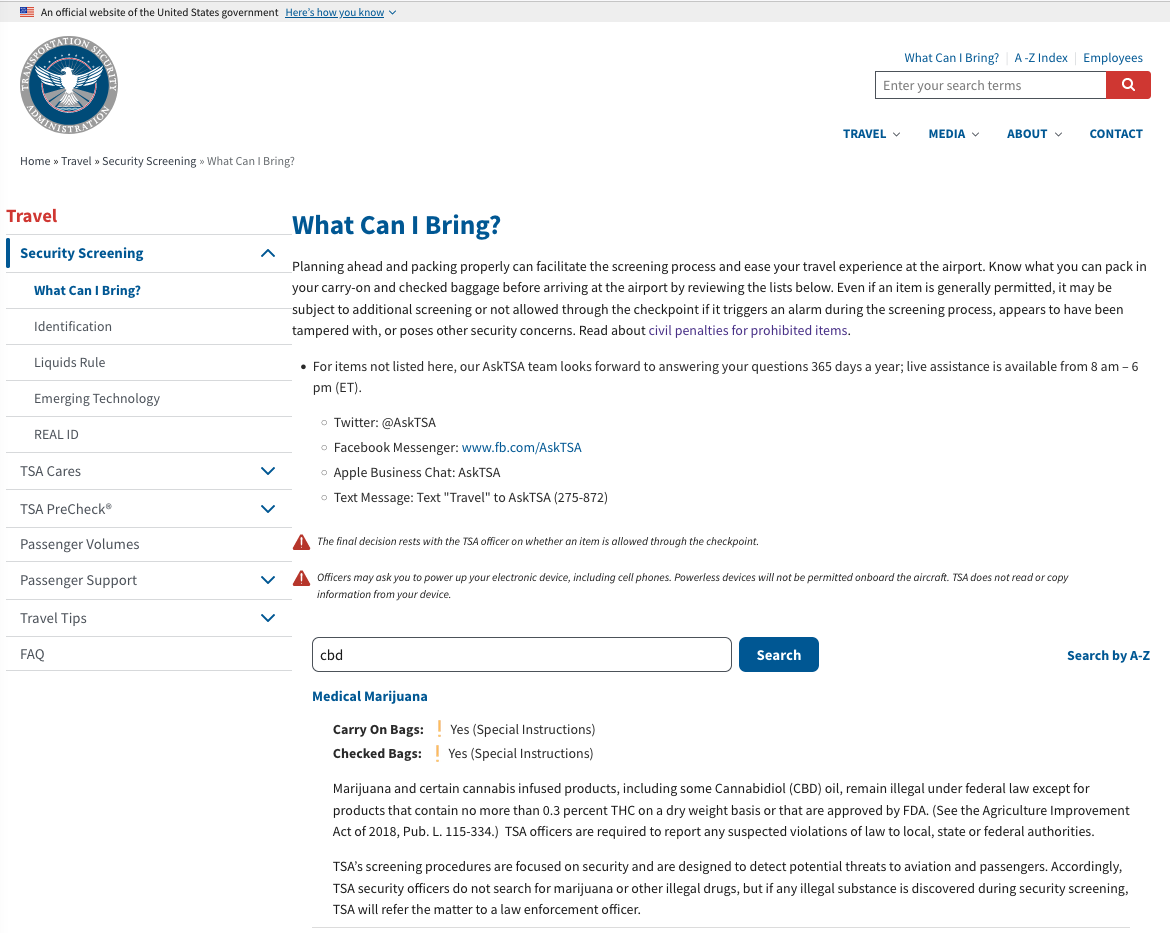The world is changing. Peoples’ response to all sorts of social issues have been revised over X amount of years, and with that, laws have changed too. Things that were illegal just a few years ago are now allowed by state and/or federal laws.
Take marijuana, for example. Cannabis for medical purposes is currently legal in 38 states, 4 U.S. territories, and Washington, D.C.. Pot is also legal for recreational use in 24 states.
Cannabidiol (CBD), a product derived from both the cannabis and hemp plants, is known for its potential therapeutic properties, including relief from pain and anxiety, as well as reduction of inflammation and sleeplessness. With that, CBD oil has become more popular for its health benefits. Even better, it’s (mostly) legal. From the Centers for Disease Control and Prevention (CDC):
In 2018, the U.S. Congress passed and signed into law the Agriculture Improvement Act. This law removed hemp from the federal Controlled Substances Act, effectively legalizing CBD if it comes from hemp. However, a few states have not removed hemp from their state’s controlled substances acts, so legality of CBD products differs across states.
After the Agricultural Improvement Act (a.k.a. 2018 Farm Bill) was passed, the TSA adapted its policies so they would align with federal law. Their primary requirement for legally bringing CBD oil onto a plane is its THC content. So their rule is that CBD oil (and any other kind of medical marijuana) must contain no more than 0.3% THC on a dry-weight basis. If a product exceeds this THC threshold, it’s not legally allowed to be brought onto a plane under federal law.
If you search for CBD under the TSA’s “What can I bring?” page, this is their response:

Medical Marijuana
- Carry On Bags: Yes (Special Instructions)
- Checked Bags: Yes (Special Instructions)
Marijuana and certain cannabis infused products, including some Cannabidiol (CBD) oil, remain illegal under federal law except for products that contain no more than 0.3 percent THC on a dry weight basis or that are approved by FDA. (See the Agriculture Improvement Act of 2018, Pub. L. 115-334.) TSA officers are required to report any suspected violations of law to local, state or federal authorities.
TSA’s screening procedures are focused on security and are designed to detect potential threats to aviation and passengers. Accordingly, TSA security officers do not search for marijuana or other illegal drugs, but if any illegal substance is discovered during security screening, TSA will refer the matter to a law enforcement officer.
It’s important to note that although CBD oil is considered to be for “medical” purposes (which would typically mean you could carry more than 3.4 ounces in your carry-on), it still needs to be under 3.4 and go into your bag o’liquids if you want to bring it with you on the plane in either your carry-on or personal bag. Larger amounts would need to go into your checked luggage.
Also heads up that although TSA officers generally aren’t looking for CBD oil, they’re within their rights to ask passengers about any item they have with them. It’s generally suggested to have documentation (i.e. proof of THC content) with you, in case you’re asked.
Some Important Caveats
The above rules are specifically for domestic flights. However keep in mind that some states still have relatively strict regulations about the use of CBD products, where a product with “no more than 0.3% THC” is still too much.
When it comes to international flights, several countries have completely different rules about CBD possession and usage. Some countries (for example, Singapore, Saudi Arabia and China, although there are others) have made it 100% forbidden to have such products in your possession, and, if caught, could land someone some major repercussions.
Want to comment on this post? Great! Read this first to help ensure it gets approved.
Want to sponsor a post, write something for Your Mileage May Vary, or put ads on our site? Click here for more info.
Like this post? Please share it! We have plenty more just like it and would love it if you decided to hang around and sign up to get emailed notifications of when we post.
Whether you’ve read our articles before or this is the first time you’re stopping by, we’re really glad you’re here and hope you come back to visit again!
This post first appeared on Your Mileage May Vary
